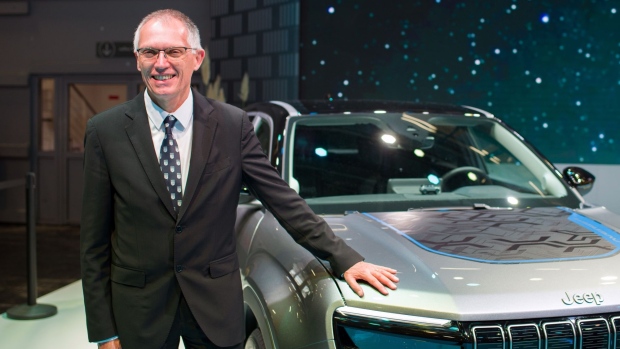Oct 21, 2022
Stellantis’s China Partner Blindsided by Possible Carmaking Exit
, Bloomberg News

(Bloomberg) -- Stellantis NV’s Chinese partner says it was blindsided by the European automaker’s suggestion that it may end manufacturing in the world’s biggest car market.
Speaking at the Paris auto show earlier this week, Stellantis Chief Executive Officer Carlos Tavares said the producer of Peugeot and Citroën cars may implement an “asset-light” strategy for those brands in China, repeating a phrase he used earlier in the year to describe his decision to pull out from the company’s only Jeep plant in the country.
Read more: Stellantis Mulls Ending All Carmaking in China After Jeep Exit
Local partner Dongfeng Motor Group Co. was “very surprised” by his comments, a company representative said in a response to Bloomberg News. “Dongfeng Motor Group had never received any notice before,” the representative said.
“Our group is in active discussion with Stellantis about the improvement plan of Dongfeng Peugeot-Citroën Automobile Co.,” the Chinese automaker said. The joint venture has posted year-on-year sales growth for the past 23 months, it added, stressing that Dongfeng has made an “extremely large effort and contribution to the growth.”
When questioned by reporters in Paris on his view on China, Tavares said he didn’t think having factories in the country is “indispensable” for the carmaker’s strategy.
A spokesperson for Stellantis in China said they had no comment on Dongfeng’s statement.
In July, Guangzhou Automobile Group, which partners with Stellantis’s Jeep brand, blasted the automaker’s decision to end local production and rely on imports after the two sides were unable to agree on Stellantis raising its stake in the joint venture. The Guangzhou-based, state-backed company said comments Tavares made on how trust had broken down between the two companies over their Chinese manufacturing partnership were “unbelievable.”
Several Stellantis ventures “failed to achieve success, which is the result of a lack of respect for customers in the Chinese automobile market,” GAC Group said at the time.
In addition, Stellantis’s Opel brand said last month it’s pausing a planned expansion in China.
Tavares’ moves come as the Chinese auto market becomes more challenging, with foreign automakers facing a rising crop of domestic rivals. The market is also swiftly pivoting electric, an area that some multinational carmakers have been slower to move on. Domestic automakers accounted for almost 80% of EV sales through the first seven months of 2022, according to data compiled by the China Passenger Car Association.
Read more: China’s Love of Local EVs Is Bad News for Foreign Carmakers
©2022 Bloomberg L.P.


